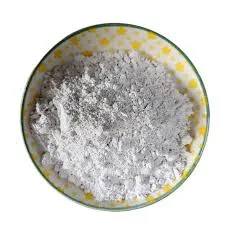- Afrikaans
- Albanian
- Amharic
- Arabic
- Armenian
- Azerbaijani
- Basque
- Belarusian
- Bengali
- Bosnian
- Bulgarian
- Catalan
- Cebuano
- Corsican
- Croatian
- Czech
- Danish
- Dutch
- English
- Esperanto
- Estonian
- Finnish
- French
- Frisian
- Galician
- Georgian
- German
- Greek
- Gujarati
- Haitian Creole
- hausa
- hawaiian
- Hebrew
- Hindi
- Miao
- Hungarian
- Icelandic
- igbo
- Indonesian
- irish
- Italian
- Japanese
- Javanese
- Kannada
- kazakh
- Khmer
- Rwandese
- Korean
- Kurdish
- Kyrgyz
- Lao
- Latin
- Latvian
- Lithuanian
- Luxembourgish
- Macedonian
- Malgashi
- Malay
- Malayalam
- Maltese
- Maori
- Marathi
- Mongolian
- Myanmar
- Nepali
- Norwegian
- Norwegian
- Occitan
- Pashto
- Persian
- Polish
- Portuguese
- Punjabi
- Romanian
- Russian
- Samoan
- Scottish Gaelic
- Serbian
- Sesotho
- Shona
- Sindhi
- Sinhala
- Slovak
- Slovenian
- Somali
- Spanish
- Sundanese
- Swahili
- Swedish
- Tagalog
- Tajik
- Tamil
- Tatar
- Telugu
- Thai
- Turkish
- Turkmen
- Ukrainian
- Urdu
- Uighur
- Uzbek
- Vietnamese
- Welsh
- Bantu
- Yiddish
- Yoruba
- Zulu
Oktoba . 31, 2024 03:55 Back to list
veterinary antifungal
Veterinary Antifungal Treatments Safeguarding Animal Health
Fungal infections in animals can lead to serious health issues, and veterinary antifungals play a crucial role in managing these conditions. Fungi are a diverse group of organisms, and while many are harmless, some can cause diseases that affect various animal species, from domesticated pets to livestock. Understanding the implications and applications of antifungal treatments in veterinary medicine is essential for maintaining animal health.
Common fungal infections affecting animals include dermatophytes, yeasts, and systemic mycoses. Dermatophytoses, such as ringworm, are particularly common in cats and dogs, causing skin lesions and discomfort. Yeast infections, often caused by *Malassezia*, can lead to otitis and skin problems. Systemic fungal infections, like those caused by *Blastomyces* or *Histoplasma*, can affect multiple organ systems and be life-threatening if not treated promptly.
Veterinary antifungal agents can be categorized into several classes, including polyenes, azoles, echinocandins, and allylamines. Each class has unique mechanisms of action and effectiveness against different fungal pathogens. For instance, polyenes, such as amphotericin B, disrupt fungal cell membranes, while azoles, including fluconazole and itraconazole, inhibit ergosterol synthesis, essential for fungal cell growth. Echinocandins, such as caspofungin, target the fungal cell wall, making them effective against certain strains, while allylamines primarily focus on dermatophytes.
veterinary antifungal

Administering antifungal treatments in veterinary practice requires careful consideration of the type of infection, the specific pathogen involved, and the animal's overall health. Dosing regimens and treatment durations can vary significantly, depending on the severity of the infection and the pharmacokinetics of the chosen drug. Additionally, the potential for drug interactions, side effects, and toxicity must be evaluated before initiating therapy.
It's also vital to recognize the importance of antifungal stewardship in veterinary medicine. Overuse or inappropriate use of antifungals can lead to resistance, making future infections more challenging to treat. Veterinarians must stay informed about the latest guidelines and research to ensure they prescribe the most effective treatments while minimizing risks.
In conclusion, veterinary antifungal treatments are a key component of animal healthcare, essential for diagnosing and managing fungal infections. With a variety of antifungal agents available and ongoing research into their efficacy, veterinarians are better equipped than ever to ensure the welfare of their animal patients. The future of veterinary antifungals looks promising, with the potential for new developments that enhance both treatment strategies and outcomes for infected animals.
-
Guide to Oxytetracycline Injection
NewsMar.27,2025
-
Guide to Colistin Sulphate
NewsMar.27,2025
-
Gentamicin Sulfate: Uses, Price, And Key Information
NewsMar.27,2025
-
Enrofloxacin Injection: Uses, Price, And Supplier Information
NewsMar.27,2025
-
Dexamethasone Sodium Phosphate Injection: Uses, Price, And Key Information
NewsMar.27,2025
-
Albendazole Tablet: Uses, Dosage, Cost, And Key Information
NewsMar.27,2025













